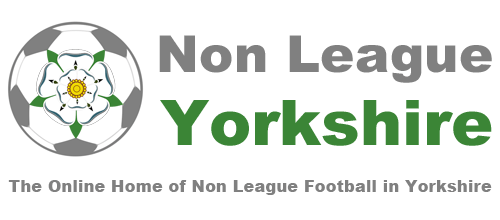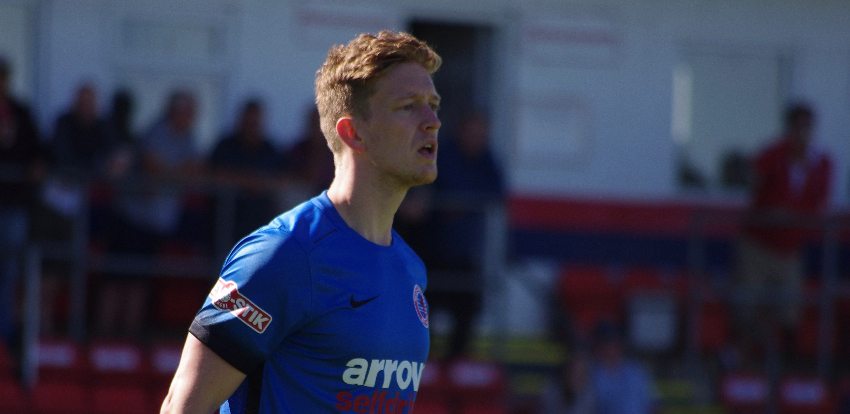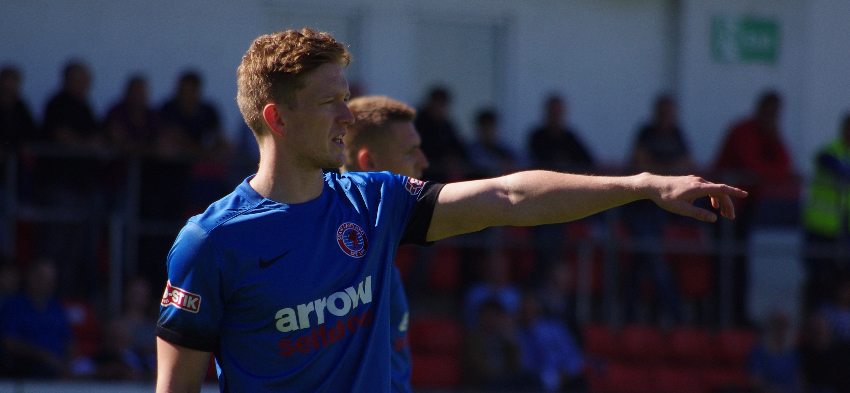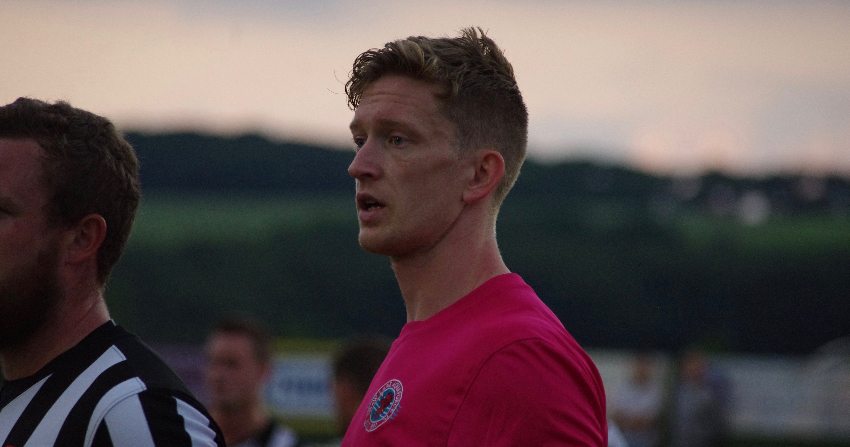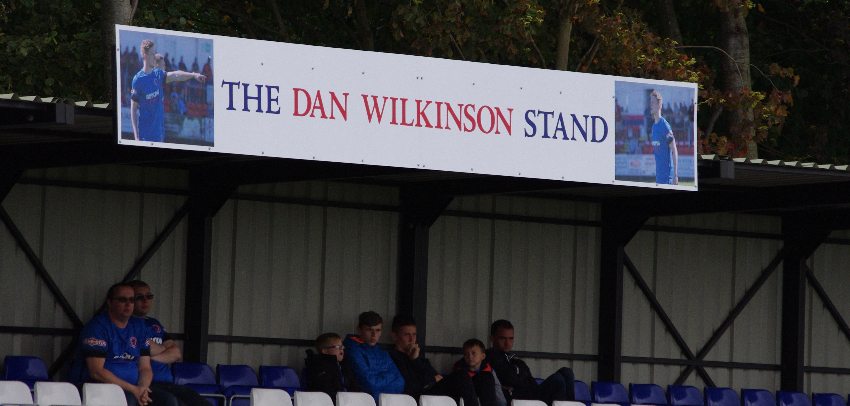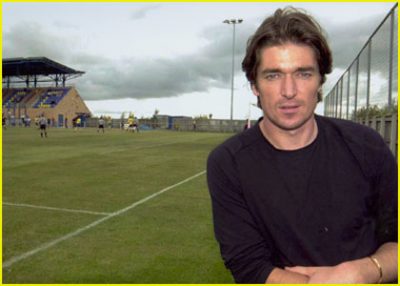
As journeys go, Simon Clifford’s ownership of Garforth Town was a thrilling adventure and one that will never be forgotten.
Pioneer Clifford, the founder of the Brazilian Soccer Schools and whose coaching methods have proven to have been ahead of their time, threw his heart and soul into delivering success for the East Leeds club.
Socrates put Garforth on the football map and is ultimately his legacy, but as the club’s manager, Clifford won two promotions in three seasons between 2005 and 2007 to take them into the Northern Premier League for the first time in their history.
Despite all the unparalleled success, unfortunately Clifford’s time with Garforth ended unceremoniously in 2012 as he was forced to sell the club.
In the background, his short move to Southampton to work with Sir Clive Woodward in 2005 proved to be a major catalyst for health problems which unfolded over the next seven years.
But even with his health at the lowest ebb in 2012, Clifford’s love for Garforth was so strong and deep that he was determined to find a safe and secure sanctuary for the club and indeed he did in former Southampton chairman Rupert Lowe.
Now in an interview with Non League Yorkshire, Clifford reminisces about his finest moments from Socrates to the two promotions he won. He discusses Cafu, Juninho, his appointment of Paul Gascoigne as Garforth’s manager, whilst also shining a light on how he became owner of Garforth and on his final few years with the club.
This is Simon Clifford’s Non League Journey:
Road to Garforth Town (2002)
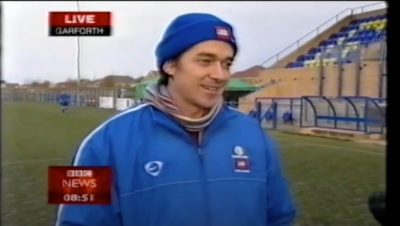
“Brazilian Soccer Schools had started in 1996 and by 2002 they were going pretty well. We had started to move across the world and we ended up on every continent. We would have been on a fair few by 2002. That had gone beyond anything I had expected and we were on the verge of launching something else which also ended up across the world and ended up being called Socatots.
“Garforth came about because of a friend of mine Jon Conway (now a sports consultant in America) who was Leeds City Council’s Football Development Officer at the time. He had this vision of future where Non League and grassroots football clubs would find the future difficult, financially and in other ways. He had this vision of super clubs which was sort of merging grassroots clubs with their nearest Non League club. He had quite a visionary proposal on it. Him and I used to meet, not on that, just general football chat because of his role.
“Because of his super club thing he was dealing with a lot of clubs. He was dealing with Farsley, Guiseley and Garforth. I suppose he knew the in’s and out’s of some of the finances of some of them. He explained to me that some of them were struggling. At one meeting he said to me ‘why don’t you take on a club and see if it can be a platform for some of your kids who are coming through’. I suppose the idea came from Jon Conway. He perhaps challenged me. He said ‘you’ve had success at youth level, would it translate (to senior football)’? We had done really well in some games against professional clubs and in fact around the time I bought the club the soccer school team made up of kids from Leeds they beat the U15 National Team of Scotland at football.
“He talked through some things on Farsley and Guiseley, but our (BSS) office at the time was at Ledston Luck (3 miles from Garforth’s ground). I had a real affinity and history with East Leeds as I taught in the area at Corpus Christi. Also when I went out to look at Garforth they had a brand new stadium and it was sort of Brazil’s colours because the seats were yellow and blue. I met Stephen Hayle the chairman and initially I don’t think they wanted to sell the club or anything like that.
“I got talking to them and a little later on they asked about me helping and I rented an office at the club which helped them a little bit. I don’t think they weren’t paying players, but they were struggling a little meeting the bills. I also went on the committee, but I didn’t say much. I think it was maybe 2003 when he started talking to me about taking the whole thing on (as owner).”
25-Year Plan
During his early months as owner, Clifford revealed he had written a 25-year plan setting out what he wanted to achieve with Garforth

“I think with that plan the reason I wrote it was really for Lego who were one of our (BSS) sponsors. Lego had come in and backed me with my vision for the Soccer Schools in the UK in 1999 and had put a million pounds behind it. In 2002 they renewed their sponsorship contract so I think I was trying to show to Lego as our main partner the value of incorporating the club (Garforth) into the Soccer Schools and the bigger vision. I suppose I also had a certain accountability to my time with Lego with my focus on the Soccer Schools and the rest of it and I suppose it (25-year plan) was to show them it (Garforth) would be a good use of my time.
“Although we did put the plan together, in time there shouldn’t be any limit what you could achieve. I was big in setting high hopes and crazy dreams, some not entirely rational today. I look at things differently now. But there shouldn’t be limits on what you can achieve – when that (winning the Premier League) started getting repeated in the press we went with it and the publicity. But it did come with some pressure and jibes in a way. The idea was to set a high goal – my aim was actually to get into League Football. If you aim a little bit higher than that, sometimes you’ll get the real goal; an opportunity to have our soccer school kids with a League Football pathway.
“We had overachieved with what we had done with the Soccer Schools so there was no point in not being ambitious, though maybe that was too ambitious. Possibly when I was younger I always liked a difficult challenge and things interested me if they were difficult. When I looked at Farsley and Guiseley when Jon Conway said ‘maybe have a conversation there’? I think because they were a bit higher up (the pyramid) I didn’t think it was much of a challenge. Garforth were in the ninth tier and I was quite happy to take on that challenge. When you’re setting goals, you have got to stretch yourself and set challenging ones. Set the bar high. It is like the old Oscar Wilde quote of shooting for the moon and if you miss you’ll land among the stars.”
Appointment as Manager (August 2004)
Jimmy Martin resigned as manager two games into the 2004/05 season following a 1-0 home defeat to Gedling Town, leaving Clifford ‘holding the baby’.
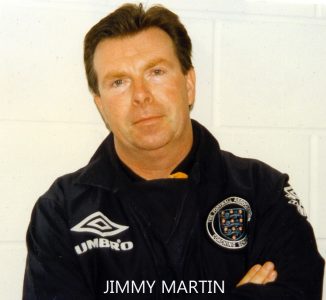
“We had talks over a long period about me buying it and in me buying it I paid off the club’s debts. I was happy to sit on the committee, even after I had bought it. When I bought it, I said to myself ‘maybe don’t get involved in the coaching or management for a good decade because there’s plenty to do with the schools around the world’. There was the second business Socatots as well.
“Dave Holmes, a lovely guy, was the manager when I first went to Garforth. The club then made a change and they appointed Jimmy Martin. I may have been more-or-less owner by then. But I got to know Jimmy as I was funding it. He was a great manager and a great person.
“He did the first season (2003/04) and I tried to give an okay budget. Around the time the NCEL Division One was quite short in terms of teams. There were only 16 teams in it so there were only 30 fixtures. So the following season (2004/05) started and I put more money to it and we lost the first two games which doesn’t sound too catastrophic, but when you’re in a season with only 30 games I’d been told that you could only afford to lose five games if you want to win promotion. I had put the budget up and it may have gone to as competitively as anyone in that league.
“Jimmy resigned a few days after that second defeat (Gedling) and he said to me ‘why don’t you have a go at it’? I was thinking to myself that it was the last thing I wanted to do. Him and me talked very civilly about it. In fairness to Jimmy, he had some tough games in those first weeks of the season. The first promotion we got though was down to a lot of the squad that he amassed, so credit must go to him there.
“We had an FA Cup game in the North East at the weekend and I still didn’t consider that I would be managing. I didn’t have any contacts in Non League and I didn’t know what I was going to do for that fixture, but I had to take the game myself.
“I’d obviously run teams at youth level and it didn’t faze me. I went up to Shildon and we lost and there was another game quite quickly so I ended running up the team.
“I gave Vernol Blair a lift up to Shildon and I was thinking of offering him the job because my friends in Chapeltown had told me what a good job he had done with some of the teams down there.
“Bravo TV had the contract for every Brazil National Team game at the time and Bravo had me as their studio man with James Richardson. Me and him did that and Lee Sharpe was our guest one day. Bravo had done a little feature on Garforth and I got talking to Sharpey afterwards and we had a few beers and I told him that I owned the club, but I’d had to manage it for a couple of games. Long story short, he ended up wanting to come and signed a few days later. That got things going and maybe that week something changed in me and I thought ‘you know what, there’s not many alternatives, you’re going to have to run with it yourself for a little bit’.”
Training
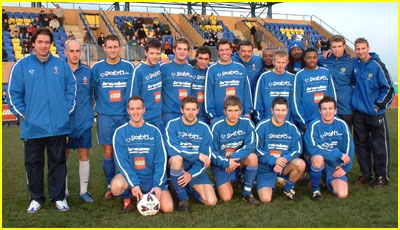
“I’d seen that throwing money at a problem in football isn’t necessarily going to work so as is my habit I knew we would have to train extremely hard. If we weren’t playing we’d train three times a week and if we were playing we’d still train two. We’d train a lot and we’d meet at 7pm and sometimes training would go on until 11pm. It was a wonderful time and I even think I reduced the budget as I was unsure it would work because I wanted people who really wanted to play for Garforth. I put everyone on the same money and said if you’re in you’re in and anyone can leave if they don’t want to stay after Jimmy left. I told them that we were going to work extremely hard.
“We set off like a train and because I was doing so much fitness in the background that normally you would do just in pre-season. Sometimes in training you have an adaptation period where you might get worse before you get better. So at first we did alright as we were getting wins, but after Christmas we won every match except one which was a draw. But it was because of the work we did in September and October. I enjoyed working with all those players – Nick Jagger, Andy Long, Robinson, Jay Sobers, Gav Birmingham, Mick Longfellow, Nick Manousis, Matt Murphy, Andy Rowan, Brett (Renshaw), Greg (Kelly), Brookey (Andy Brooke). There’s some we haven’t mentioned. They all bought into it.”
Assistants
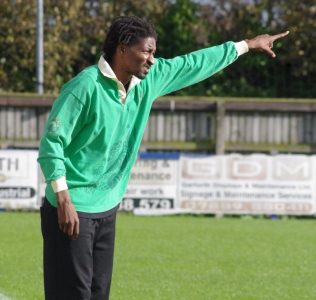
“Alan Billingham, the ex-Worsbrough Bridge manager, came in to help me. Vernol Blair assisted, and was vital in playing for us that season. Alan and Vernol were vital because they had the contacts in Non League I didn’t have. Steve Nichol became involved as a coach that season and he went on to live up to his potential. Steve had run one of my soccer schools in Sunderland. Despite his age, the next season (2005/06) when I wasn’t going to be there (because of the move to Southampton) I was happy to make him manager. I think he was only 26 or 27.”
Socrates (November 2004)
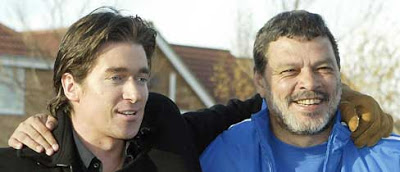
“Brazilian Soccer Schools were now worldwide and people in the organisation might have been thinking ‘why’s he spending his time up at Garforth, a Non League Football club, how does this fit in’? I was thinking about how do I make a strong connection between the club and the soccer schools? In the future we were hoping kids from our soccer schools would play for the club. That season we played maybe four or five 16-year-olds at different points. They did well. Kumar Parkinson who is no longer with us, got us vital goals.
“I’d had some of the younger guys around the club, but I thought I’d see if one of the guys I had worked with in Brazil for the previous eight years would want to come over and maybe play a few games? I thought that would bring publicity and forge a link between the soccer schools and Garforth. I’d considered Zico who I had been out in Brazil and Careca – who later did come in 2006. I put feelers out to them.
“Alex Bellos, my friend who had written a wonderful book on Brazil called Futebol: The Brazilian Way of Life; he said to me ‘I think Socrates might be up for doing this’.
“Socrates liked what I was trying to do in terms of trying to effect a change in English Football. English Football was not great on the technical level when I started the soccer schools to bring something fresh to English Football. I was very serious about the Brazilian Soccer Schools and really it was an effort to improve English Football at youth level.
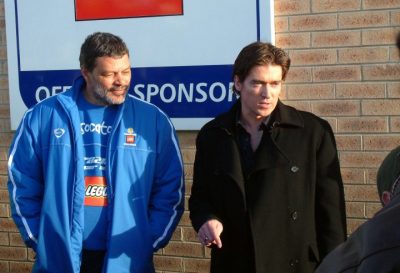
“Socrates had been a bit of an anti-establishment figure in Brazil. He had obviously led the Corinthians democracy process in the 1980s which was fundamental in the overthrow of the military dictatorship in Brazil. He put his life at risk. He was in a little group with a guy who later became the president of Brazil. You can’t under-estimate what he did politically.
“Him and I really hit it off as people. He was also clashing various times with the football authorities in Brazil. It couldn’t have fell better. I didn’t know if he would play or not? He was obviously a bit old, but he wanted to play and that was him. He was someone who was up for new, interesting and adventurous experiences.
“By this point we’d got up to near the top of the table. He was going to be here for maybe a month, but it came down to the Tadcaster game. It was amazing and it is still one of my favourite weeks of my life. I loved the whole build-up, talking to him each night on football and life. He had so much love for the project I was doing. He was brilliant with the lads and anyone who was around us. He had such a grace that made everyone feel that they were the important one, not him. His humility was really on a different level to anything I’d seen.
“Anyway, that game. I thought maybe play him for a half. As the game went on with the press from around the world watching. It was unreal and it was probably distracting for the players and probably meant I didn’t give the forensic team-talk I’d normally give. We went 2-0 up and I was edging my mind on when to bring him on. Part of my mind wanted to win the game, but I had to realise that all these people had come to see him play. I’d tried to get him on before I did and I didn’t because his boots wouldn’t fit or something like that. I think he ended up wearing physio Paul Cavell’s boots. He then wanted to go in the changing rooms with me and basically have a little cigarette. We obviously got a penalty and he should have been on for it and would have likely taken it. We got him on with 13 minutes to go and the first touch was a shot.
“It finished 2-2, but in a way we won because it turned into a very joyous experience for everyone. It did put Garforth on the map which is what we wanted. It forged a link between the soccer schools and Garforth. We had little kids from Socatots there so it brought all the strands of what I was doing together for a day and I hoped it was going to set the tone for how we were going to go forward.”
Psychological Tactics against Opposition Teams
“At that stage in my life if I did something I was very determined to win. Clive Woodward taught me a thing a bit later, but I was a bit of this mind already, but Clive said ‘bend the rules, but don’t break them’. In terms of the psychological bit or having an extra edge, if I could find a way to unsettle an opponent before the match then back then I would use it. I would. In saying that, I observed at NCEL you had players playing under false names. Not us. You had other things going off. You had players told to kick other players and hurt them. Never us. That was something we would have never have done.
“In terms of the psychological side it is not something I’d do today. You have to think of the ethics of sport and why we are actually playing it. Back then I’d fought battles with the FA here to get Futsal recognised and get some of the other things we were doing looked at or accepted. I went round every Premier League club in the country bar two and got them accepting Futsal and other things. Some of it was pretty hard. As either Brett or Greg says (in previous interviews), possibly because of what we were trying to do we had a heck of a lot of resentment and people against us. That maybe riled me a little bit more.
“Things like balls being kicked on to disrupt or halt the game may have happened in a game or two. It is a great story to look back at, but it didn’t happen every week. You have to be sensible and referees all talk and they would soon get wise to it.”
The Pink Away Dressing Room
“I think our stadium had won an award for architecture. It was a beautiful stadium. What struck me in the first few years at Garforth is visiting players turning up and seeing that everything is beautiful. It was and I made sure it stayed beautiful. I thought players were walking in with a spring in their step because they had a beautiful pitch. Thanks to Richard Cale we won Non League Ground of the year twice because of the surface. After a year I thought ‘this isn’t good. These away players are walking out here thinking it is the best day of their season, let’s make it less enjoyable’. I don’t know if it was pink or what colour we painted it, but we started not going to Town as much with how we had things set out for them (visiting players) before a match.”
Form after Christmas (2004/05)
“When we played Carlton just after Christmas, we’d have a few dodgy results like the Socrates game (2-2 with Tadcaster) and the Pontefract (lost 0-2) one which Socrates was at. I had a meeting on Boxing Day with the players and I said ‘lift your heads, get them off the floor’. All the players said their bit, but I said ‘this is not over, it is not going to be easy, but we’re going to do it’. They were saying that we were going to have to win more-or-less every game. I said ‘if we work together, we will (get promoted)’.
“The first game after that meeting was Carlton at home. Tommy Brookbank is a good mate of mine now, he was Carlton’s manager and I remember him shouting at his lads ‘it is s**t or bust for them (Garforth) today’. He was dead right. They were vying with us for second place and that day didn’t start well as we had somebody sent off after about ten minutes. We ended up winning 3-1 so that was a key fixture.
“After that we didn’t really look back. The only game where we made a mistake was Tadcaster Albion away. I didn’t give much of a team-talk. I had to start to get used to it, but because we had played Tadcaster in the Socrates game there was still a bit of needle there and I think I got a bit of stick from their fans. It didn’t always affect me, but it did that day and I didn’t give my normal talk. So we were drew there, but we won every other game.”
Promotion to NCEL Premier Division (April 2005)
Garforth won 1-0 at Carlton Town on the final day of the season thanks to Greg Kelly’s goal. It was effectively a winner takes all game as had Carlton won or drawn they would have been promoted instead of Garforth.
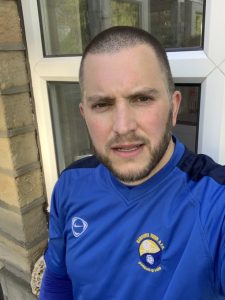
“So the last game of the season we’re playing, Carlton. They needed a draw, we had to win and I threw every little thing I could at it that day. They were quite a physically big side and our lads were young and a different physical profile and I thought in the previous game they had the edge on us in the tunnel. I thought I wasn’t going to let that happen again so I’m not even going to go in the tunnel. So I decided to go late. I sent a couple of buses from Garforth early which I put people on for free. I put red and black scarfs on the seats because I changed the colour for the game. I wanted to throw Carlton in their heads because they will have been thinking ‘this team is not bad on the ball’. I got all the fans in the new colours and I wanted all the fans to be there when we turned up. We must have had over 100 fans there. We had more-or-less taken over Carlton so it looked like we were at home.
“(Because we turned up late) Carlton must have been thinking ‘where are these lot’? We didn’t line up, we just went straight on to the pitch from the bus. We obviously won with a goal in the second half. That was one of my happiest moments at Garforth, for sure. It was wonderful and we had put so much working into and I sacrificed my time from my business. But they (the players) worked so hard. We’d had Sharpey in there at one point before he went off and did Love Island, we had Socrates and it had been a wonderful season and what a wonderful way to finish it.”
Sir Clive Comes Calling
“It became a tricky season because in the middle of it all, Sir Clive Woodward got in touch with me and he had actually been offered the Southampton manager’s job, despite the fact he was coming from Rugby (Union). But before taking the manager’s job he was going to work in the club for a year or two, maybe with the reserves. It was a very bold proposal of the chairman Rupert Lowe’s. Clive had scoured the world for a young and ambitious coach to work with and whose ideas were aligned with his own. Obviously I had been around football for eight years or so and my work with youth players was certainly valued.
“The person he wanted to work with was me. So that was tricky all that year. Clive asked to meet me and he came up to Leeds and threw this opportunity to work at Southampton at me. At the beginning I was going to be head of sports science and he would be performance director. We would also be running the reserve team. Maybe the year after we would be (running the) first team.
“In a way it was a really positive thing and a real compliment to be courted by Clive. I said no to it quite a few times and I was really loving Garforth. Well before the end of that season he wanted a decision from me, so did the board of Southampton. As much as it was wonderful the promotion we got that year, it was tinged with sadness that I would be leaving the lads I’d such a wonderful year with.”
Move to Southampton (Summer 2005)
“Steve (Nichol) was working closely with the soccer schools and he had closely aligned thoughts with me on the game and despite his age I wanted Steve to take on managing the team with Ve (Vernol Blair) and Billy (Alan Billingham) assisting him. It was all credit to Steve that he had the confidence to do that. I went off to Southampton and Clive and I obviously had resistance. It would have been hard to find a team fitter than the Garforth teams we had in those years and when I went to Southampton, the first team were no fitter than the wonderful lads I had just left.
“Me and Clive started training the younger lads. We’d get them in on a morning, Theo Walcott all of them lot. They’d train at 7am in the morning and be training three times a day. It was hard work for them.
“We had resistance and I wouldn’t exactly say it was fun. I’d really enjoyed been with those lads at Garforth. We had such a fantastic bond and togetherness it was untrue. Eventually Clive said to me ‘let’s sit back and be patient’ because the idea was that we’d get the job from Harry (Redknapp), maybe after a year.
“There wasn’t a great atmosphere and to be honest I felt a little bored there. I was working with players in the morning and then again on a night. As it happens, Harry resigned not long after I left and Clive and me would have been in (running the first team). In the end it didn’t work out that way, but I have no regrets on that.”
Bond with Young Southampton Players
“In my wider group I had (Adam) Lallana, (Gareth) Bale. In my daily group I had Dexter Blackstock, Martin Crainey, David McGoldrick, Matty Mills, Leon Best, Theo Walcott, Nathan Dyer. Unbelievable players and we had a real bond. Possibly the older coaches they didn’t like it. I kept in touch with some of those young players and working with them, it was pretty much the same as Garforth, with a really good bond. I loved it, I was in my element with this aspect of it.
“Even if these players were injured, whether my sessions were on a morning or night, they’d still turn up. If we trained to music they’d come to work the ghetto blaster or come to do the drinks. Nathan rang me months after I quit and said ‘I’m at Burnley, we only work once a day and today we are having a day off. We need to be working three times a day. I’m not enjoying it’. I asked why and he said ‘we don’t work like we did with you’. I think we (Clifford and Woodward) effected a real positive change in the mindset in some of those young lads.”
Exit from Southampton (November 2005)
“I resigned from Southampton. One of the staff had pinned some of the press we had done on the first team dressing room lockers. That was the straw that broke the camel’s back for me. It was me saying the players weren’t working hard enough, but a member of staff made sure the players had seen it. It was people trying to be disruptive. But I made us an easy target for that by stating such things. It would have been better for me to keep my own counsel, and effect change in a gentler way.
“At that point in my life I didn’t like to waste a minute which was probably not a good thing. I had turned away from the soccer schools, Socatots, Garforth and I went down there and I was opening the club up with Clive at 7am, working until 8.30am and then having nothing to do during the day. The reserve team, the 21s lads we coached, I enjoyed doing that, but there was just resistance and not enough to do. Clive kept saying ‘sit back for two years and wait’, but he couldn’t have said a worse thing because I couldn’t spend two years of life doing as little as this and waiting to see if Harry goes. I was too much in a hurry back then and I would be far more patient today, but in them days I was a very different man.
“I thought (in the summer 2005) that the things me and Clive were going to introduce would perhaps not be well-received. Harry was a good man, but he had his own perspective and I sensed he wouldn’t be too keen. Then when Dave Bassett came in as his assistant I definitely knew then. One day I was riding a bike into Leeds and Rupert the chairman rang and he said ‘we’re going to sign Dennis Wise, what do you think’? I said ‘I wouldn’t’. But he couldn’t get hold of Clive as he was with the Lions in Australia or somewhere. That just added to the mix.
“The set-up me and Clive had at Southampton is very much like (Marcelo) Bielsa has at Leeds. They’re in all day and they do many of the things that Clive and I advocated, but back then what we tried to do was not really accepted. Today many clubs and the Premier League and FA have embraced Futsal for example. But back then there was resistance to both Futsal and many other innovations in training and preparation that proposed, which the FA now promote. But back then, what we tried to do was not really accepted.”
Return to Garforth (November 2005)
“I came back to Garforth in the middle of a bit of a PR war between me and Harry. When I left (Southampton) I was going to dust down myself and be quiet, but he had a bit of a chelp in a few articles – saying ‘he’s (Clifford) not doing anything different’. When I took the job on they were in the Premier League and I thought I was going to a Premier League club, so did Clive. I was there for the last game of the season when they played Man United and got relegated. Okay, we went into the Championship but we were hoping they were going to go up.
“I said in the week I left ‘Southampton have a massive problem with fitness, the team’s not fit. Look at the league table, you don’t need a computer to work it out. First half of game we’re second, second half of games we’re fourth bottom’. We were playing Leeds on the Saturday and I think I resigned on the Tuesday and Harry certainly didn’t want to hear anymore about what I was saying. Southampton were winning 3-0 with ten minutes to go in that Leeds game and Southampton fans were chanting ‘are you watching Simon Clifford’. Leeds won 4-3 and Leeds fans started chanting ‘Simon Clifford is watching you, Simon Clifford is from Leeds’. I’m not from Leeds, I’m from Middlesbrough, but it was nice that they identified with me (BSS headquarters were in Leeds). It didn’t get a lot better for Southampton, but other people started chelping and there was National news articles going on for months and even cartoons about what was going on at Southampton. I found that hard. It was partly my fault, I should have just left it. But I did see at Southampton how poor things can be on the training ground and I saw that on many levels, fitness, preparation, tactics and physical condition.
“But I came back (to Garforth) and I was a bit mad that I had even gone in the first place. Garforth by this point were down near the relegation zone which also bothered me while I was at Southampton. I had gone against my instinct to do it. One night when I had said no, Clive got a driver to drive him through the night to be at my office in Leeds the next morning to persuade me to go.
“The lads at Garforth were all doing their best and what I did when it got to Christmas, I took the manager’s job for about eight matches and I think we got them up to about tenth and away from relegation. I then thought it was a write-off season in more ways than one so I decided to throw in young kids from the soccer schools to see how they did because whether we finished tenth or twelfth, it wasn’t going to make a blind bit of difference. I put in about five young lads and they played every game. That includes Chris Hutchinson, Duncan Williams. By the end of the season Duncan Williams showed me he was the one who I thought could step-up, even though he was only 17 or 18. In the following season, aged 18, he was a big part of us getting promotion. Duncan had come through the soccer schools and was the epitome of the type of lad I was hoping to bring through in his football, technical quality, his physical qualities and in his tremendous character.”
2006/07
Garforth finished fourth in the NCEL Premier Division table with earning Clifford his second promotion in three seasons to catapult the club into the NPL for the first time in its history

“I made some signings for the new campaign, but it still wasn’t the same as my mind was still on Southampton and I suppose the journey I had been on for nine years from being a school teacher, it seemed too many things were happening at once. Clive said to me that the chief executive of the FA had offered him the job as performance director at the FA if he made a success of it at Southampton. Clive was talking as if we could have ended up at the FA or with the England teams. So there was all sorts going on and Clive’s reputation was very high.
“Things were starting to weigh a bit heavy on me. A bit of the aggravation you could get from being Garforth before was tolerable, but when I came back from Southampton it did weigh. Through that season I think my mental health became not good. I self-medicated through alcohol. This is not a good idea at all and obviously makes mental health worse which I completely understand today but sadly hadn’t grasped then. There was stress from all around and I didn’t help myself certainly with how I was in those days. I was far too aggressive myself generally. I was massively hard on myself that we had to get promoted.
“We had more-or-less the same lads plus a few more who bought into it. But it was a bit like beginning again. If I hadn’t gone to Southampton, maybe we would have had a nice follow through from the first promotion season. It had all become disjointed so I was basically starting again fitness wise. I spent July, August, September, October, really getting them fit. Again because you get adaption, you get results which are not perfect. As with the other season (2004/05) we were bobbling around the top at Christmas and in the second half of the season we only lost twice and one of those was the last game of the season.
“Things clicked. We were fit and we were almost like an unstoppable force. We got to the end of the season and it was Carlton again and it was the opposite of the previous season. We’re at home and we only needed a draw (to get promoted). They had to win (to get promoted). As Tommy Brookbank had faced me before, he knew what to expect. He knew we’d have a big crowd. On the day I think we froze which I have to blame myself for. I maybe over-prepared as my own tension about getting promoted was probably passing to the players. We lost, but because of the restructuring four went up and we were one of the four.”
Brett Renshaw – Defender Turned Striker
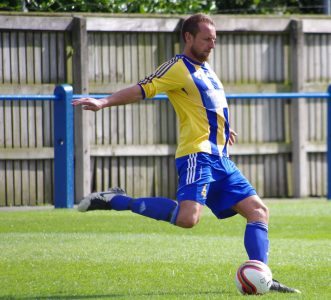
“I have great memories of that season. Shane Kelsey was absolutely brilliant for me, Jason St Juste did a little bit. Greg was unreal. All of them were brilliant.
“I had signed a really good striker called Ian Twitchen from Selby in the previous season. Because of how hard you had to run in my teams, it was basically non-stop running and it didn’t suit Twitchy. I’d spent more-or-less all the money and more on him and a couple of other ones I put on contracts and I was struggling to find out in the high intensity way we played, how we were going to get the goals?
“Around Christmas I converted Brett into striker which meant taking him out of defence, but I knew I could cover that because tactically I basically played four centre-halves at the back. I put Brett upfront and I believed he could score goals, even though he had never played there. I gave him a little video to watch and I’m sure Brett ended up as second or third top goal-scorer in the league.”
Final Five Years As Owner
“We got to the end of our season and our promotion wasn’t confirmed until maybe a couple of weeks after. Whether it was the stress of that, but whatever it was, some of the players ended up knowing, but I had a breakdown pretty much after we went up. I don’t think it was a breakdown because of that season, I think it was a breakdown that had been coming for a while, Southampton, even before that. I ended up in hospital for a month and it was a very upsetting experience for me and those around me.
“As well as managing Garforth I was responsible for a worldwide business and organisation so they had to be careful with what we said about my health. It was a delicate situation and I suppose I had built my reputation on being strong and tough and having the answer to this and that. It was a completely devastating experience for me and others. I had great people in the organisation, but I was never able to take charge or do anything fully after that period until I sold the businesses.
“I felt it almost made it (Garforth) impossible for me to manage because I had been 100mph, throw everything at them, leave no stone unturned and go to the ninth degree on the opposition. For some matches it used to take me 15-hour hours to prepare for the game tactially. That intensity was the way I’d lived for years and that and my behaviour and sometimes bad behaviour had taken me to a bad position and nearly to the end of my life I suppose. That summer (2007) is where everything changed for me.
“I was back with the team and in the UniBond (NPL) as it was called then and results were good at first. We beat FC United and by November I think we were fourth or fifth. I quit (as manager) after we played at Ossett Albion around November.
“In every single match I’d taken charge of I was there, but my mind wasn’t there. My mind was on what had I happened to me in the summer and that I wasn’t in good shape. I couldn’t do the team-talk like I used to, I couldn’t prepare. In a way, I was a pretty broken figure. That continued and got worse. I wasn’t in a position where I could publicly say ‘I need help’ because a lot of people depended on me and a lot of people’s jobs around the world depended on me. If I had my time again, maybe as a family we’d do it differently. I decided to fight and solider on. Maybe I should have had a couple of years away and got my health together, but I didn’t, I kept working.
“I stopped in November 2007 and I put Steve, Ve and Billy in charge together who were absolutely fantastic however and after a year people at the club and some supporters were saying ‘we need you back’. I managed again, but I didn’t really manage. In many ways I was a real shadow of myself. We won the (West Riding) County Cup, but we weren’t really training and we were really going through the motions.
“In 2009 I decided to take myself back from the club. I wasn’t doing a lot of decision-making and I was well enough to know I wasn’t doing much. I spoke to Steve about taking it (the manager’s job) on and I said I’d support him. What an incredible job he did for someone so young. He didn’t exceed my expectations because I believed in him from the off. I gave him my full support and I helped him through the early bits of it and what he did in season 2011/12 (finishing fifth) was unbelievable. All credit to him and his amazing work ethic and belief in himself. We nearly went up and would have been competing in the league just below the National North, but we sadly lost to Curzon on penalties (in the play-offs semi-finals).”
Paul Gascoigne’s Appointment as Garforth’s Manager (September 2010)
“Gazza was one of my heroes when I was younger like he was for all of us. I suppose some of the scrapes from drinking he was getting into, I wasn’t in a dis-similar state to myself in terms of my own mental health. I thought ‘this guy’s going to end up dead, no-one’s helping him’. I spoke to Steve (Nichol) about getting him involved so I met Paul a few times and I noticed that every-time I met him he was wearing the same clothes. He was staying on people’s sofas and I’m not sure he was looking after himself properly or had the means to and I wanted to help. I offered him £150,000 a year and I thought that would give him some money to sort himself out like somewhere to live. He was going to work with Steve and I also wanted Paul to work in schools every day. I thought he needed to be kept busy.
“We met Paul in Jesmond and he signed a proper contract. He signed and was due to come to the next match which I think was against Mossley. But his agent capitalised on the fact he had come to us and went to a few clubs like York and said ‘look, Paul’s willing to manage again, but could you better Garforth’s offer’? He had actually signed for us, but I wouldn’t have held Paul to anything. It went on for two or three weeks and he hadn’t officially started with us and he went on a bender that ended up on the front of the News of the World. Consequently it made the situation impossible to work.”
Cafu and Juninho
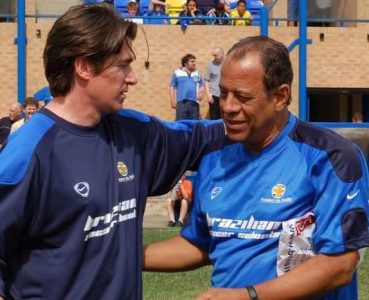
“The idea we had at the Brazilian Soccer Schools was that we would get one Brazilian over a year and there were a few we came close to. Romario agreed to come and we were going to pay him, but we would have had help from a sponsor. He was going to be about £80,000 to come over for a game or two. The reason that didn’t happen is because he was near to his 1000th goal and we were trying to agree it six months before to line up press, but he wanted to wait so he didn’t score his 1000th goal at Garforth because he wanted to do it in Brazil.
“Carlos Alberto Torres, the 70s captain who came over and did some coaching with us, and his son and Ricardo Rocha were doing some middle men work with Cafu. He was retiring and they suggested him. We’d have got it covered by sponsors. We said yes and agreed an amount of money, but he then decided to play a bit longer at AC Milan.
“Then with Juninho, I got a soft drink’s company to support him coming over to play for Garforth. We actually signed him and got international clearance from the FA. This was when Steve was manager. Juninho had just retired from Sydney (2008) and he agreed to come and play and do promotion for the soccer schools. I went to the FA and they wouldn’t give international clearance. I don’t know how we got it for Socates looking back! But the FA agreed it in the end because we had to argue a case because he hadn’t played x number of international games in the previous 12 months. We had to prove they could make a contribution to English Football. So we got it, but we hadn’t set a date. Middlesbrough hadn’t held a testimonial for him at that stage either so we thought it would be a good way for the Boro fans to say goodbye to him.
“What then happens is Juninho’s old club in Brazil, Ituano, get in touch with him and ask him to save them. He did and he sort of became owner, president stroke player/manager. The were close to relegation and he rang up and said ‘I need to play for them next week, I don’t think they’ll stay up without me’. I said fine and he said ‘Garforth holds my international clearance, what are we going to do, the FA are saying it will take a month’. I rang the FA to release the international clearance and I got on well with this particular guy and we got talking and he did it for me within 48 hours which is not how it is normally done. Juninho was able to play. He scored and kept Ituano up.”
The Garforth Journey Ends (Late 2012)
Steve Nichol and his players left in the summer of 2012, along with the club’s volunteers. Some supporters also boycotted matches. Clifford’s health was now at its lowest point and Garforth’s fortunes significantly declined.
Vernol Blair took charge of the team and although the club ultimately finished bottom of the NPL Division One North table and were relegated, he kept the club afloat while Clifford sought a new owner.
“I would like to give enormous praise and thanks to Vernol Blair for leading the team through that season in near impossible circumstances, and Dave Smith for assisting him. (I thank) Dan Sherrife for captaining and thank everyone of the players who played for us that season. They forever have my thanks. Off-the-pitch Mark Hanson and Chris Wright did absolutely incredible work to keep things going and a great debt is owed to them. Chris made mistakes because he was young, but you also have to look at the good that was done there for the future of the club.
“(By 2012) I had never fully recovered from what had happened to be in 2007. Thanks be to God, I have recovered today and I’ve had seven years of the best physical, mental and spiritual health of my life. My life today is on a much different footing and I lead a very different life. It took by the grace of God and it took time of not working to recover.
“But in 2012 I was just not in good shape at all. I was getting worse and to be honest by the end of 2012 I didn’t know if I had long to live or if I would live much longer. I didn’t really want to, but I handed over control of the soccer schools to Rupert Lowe who didn’t want to take the Football Club. I insisted that if he did have the soccer schools, he had to (take Garforth) because one of my main priorities was that Garforth would be alright.
“Money-wise, to run the team the club cost me around £100,000 a year for all those years and I didn’t get anything back.
“I don’t think it (the club) could have folded because regardless what money he might have put in or not put in, Rupert was a guy of means. The easiest thing for me to have done is sell the soccer schools to Rupert or someone else and not (sell) Garforth. Rupert understood how to run a Football Club from Southampton and I believed I was doing the right thing for the club in putting the club in his hands.
“My soccer schools were my life’s work, but at the time I didn’t really know what was going on and was not capable of making good decisions, but maybe I thought at least these things would continue. In hindsight I am grateful that Rupert did take on the club and business as it allowed me to finally recover my health. That was the end of my bit (with Garforth).”
Present Day
“I had three years where I didn’t work and didn’t know if I ever would. I thought ‘maybe I just need to be focussed on having positive mental health and getting physically well. As I got better people started to ask me to do this and that. This happened and I got better and more recovered as the years passed. With getting well, people started asking me to work with them, some individuals and clubs asking me to do this and that and I gently started working again.
“I’ve had the best seven years of my life psychologically, mentally, physically, spiritually and we’ve had the best family life for seven life. We live in Harrogate now. I run a new company called Integer Football which I find incredibly fulfilling. I live a very healthy life now – I meditate, run, train, reflect. I do all of the things I didn’t really do before and I have many of the updies of my former life without any of the downsides that were self-inflicted. It is a calm and peaceful life for myself and those around me. In addition to Integer Football – which I have been working on for the last few years in conjunction with some postgraduate work – I also mentor all the professional players at a Yorkshire-based agency. It gives me a good mix between the young and older players and I find that incredibly rewarding too. Thanks be to god to be alive and have the chance to work with such great people and live on a different footing, where I work to develop players and it is the happiest thing I’ve done in my life and it suits me. I always liked working with players.”
Last Message to Followers of Garforth
“So to all the people at Garforth, I wish them all the best. The two owners, Brian (Close) and Craig (Bannister), I wish them all the best. They are two great men. To all the players who ever played for us, I thank them too and wish them well. To the people who fell out with either me or the club during tenure I apologise and hope to be able to make it up to them. I give them all thanks and the very best wishes too.
“I thank everyone for my time at Garforth, all the fantastic players through every season, even the ones when I said I was going through the motions, they were absolutely tremendous all of them along with the unbelievable set of lads who did so well under Steve. Garforth was a part of my life that I’ll always treasure.
“I do look out for Garforth’s results. I didn’t initially, but Garforth was and is a massive part of me. Norman Hebbron who has just passed away was so wonderful to me and I’m still in touch with Garforth Gary.
“I gave Garforth my heart, body and soul as Clive Woodward would say. I gave everything and when I couldn’t, I was prevented by illness. By 2007, that summer I had given everything I had from the minute I arrived.”
If you have enjoyed this interview, please consider making a donation to the not-for-profit organisation NLY Community Sport which provides sport for children and adults with disabilities and learning difficulties. CLICK HERE to visit the JustGiving page.
There is a video at the bottom of the page showing our work.
NLY Community Sport, run by James Grayson and Connor Rollinson, has always had combatting social isolation at the top of our objectives when running our Disability Football teams so when the green light to return is given, our work will play an important role in reintroducing our players, who have disabilities and learning difficulties, back into society.
We have six teams, a mixture of Junior and Adult teams – Nostell MW DFC, Pontefract Pirates, Selby Disability Football Club and the South Yorkshire Superheroes (Barnsley) – across Yorkshire.
We have enjoyed great success over the past three years. Several of our players have represented Mencap GB in Geneva, including Billy Hobson from Selby and Greg Smith, whose story is quite inspiring.
Like most organisations, we have been affected financially by the Coronavirus and we have incurred losses which we cannot recover. We have not been hit as badly as other organisations, but we do need raise £2000 to put us back at the level we were at in mid-March and enable us to make a difference once again to our players’ lives in the future, without having financial worries. As each day goes by, a substantial number of our players become further isolated so we need to be ‘ready for action’ when restrictions are lifted.
Any amount raised above £2000 will be put towards new projects (when the world returns to normal) designed to further benefit people with disabilities and learning difficulties. You can learn more about the organisation HERE and on our Facebook page.
Watch the video below to see highlights from our three years as an organisation. The video was produced for our players at the end of March to remind them of good memories from the last three years.
